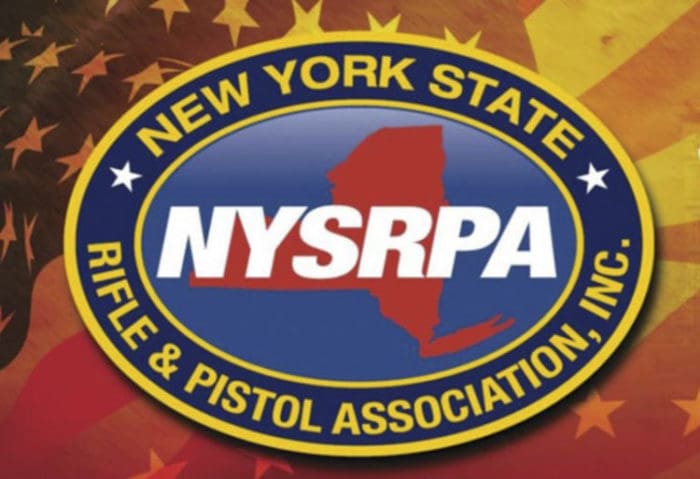The forces of civilian disarmament realized the existential threat posed to their cause when the US Supreme Court granted cert to New York State Rifle & Pistol Association v. City of New York. The City’s gross restrictions on the right to keep and bear arms were so egregious that the case gave the pro-2A Justices a perfect opportunity to expand on the Heller ruling and slap down Circuit Courts that had openly thumbed their noses at it.
The case’s threat to current gun control laws around the country was so great that the City was convinced to marginally change its law in a transparent attempt to render the case moot and avoid a devastating SCOTUS ruling.
In addition, a sympathetic and equally anti-gun New York legislature enacted a state law with a carve-out for the City that would allow them to continue to limit citizens’ ability to transport their legally-owned firearms, but do it under the new state law, something that isn’t at issue under the current Court case.
The City’s brief in answer to the petitioner’s suit is due to be filed with the Court tomorrow. It should be more than a little interesting to read. In addition, City attorneys filed a “suggestion of mootness” brief with the court in an effort chloroform the current case.
In response, NYSRPA attorneys answered with a devastating response that exposes the City’s cynical efforts to weasel their way out of what looks like a no-win situation.
Here’s the response’s introduction (edited slightly for readability).
For decades, the City of New York imposed numerous restrictions on law-abiding residents that effectively prohibited them from transporting their licensed handguns anywhere beyond seven in-city ranges. Five years ago, petitioners (three city
residents and an association representing handgun owners statewide) challenged that regime, insisting that the Second Amendment gives them a right to transport their licensed handguns to places where they can be lawfully possessed, like second homes, out-of-city ranges, and shooting competitions.For five years, the City actively and successfully defended its regime, ultimately procuring a Second Circuit decision that eliminated meaningful protection for Second Amendment rights. Then this Court granted certiorari, and the City abruptly shifted gears, undertaking a series of extraordinary maneuvers designed to frustrate this Court’s review and obviate the City’s need even to explain itself in a merits brief.
The City’s efforts culminated in a revised regulation designed to loosen the City’s restrictions to the minimum degree necessary to render this litigation moot and a City-procured state law that actually grants the City unique authority to prevent nonresidents from transporting licensed handguns through the city.
Neither of those changes renders this controversy moot, and each vindicates this Court’s well-grounded skepticism of voluntary cessation of unlawful conduct generally and of “postcertiorari maneuvers designed to insulate a decision from review by this Court” in particular.
The City’s begrudging revisions to its restrictive transport ban reflect the City’s unwavering view that the ability to transport a licensed handgun is a matter of government-conferred privilege, rather than a constitutional right. As a consequence, the revised regulations demand continuous and uninterrupted transport (forbidding a stop at a gas station or coffee shop en route), require written permission before a handgun can be taken to a gunsmith, and preclude transport to a summer rental house.
If the City had suggested the same revisions as a proposed injunction after a loss on the merits, petitioners would have objected to them as inconsistent with their just reaffirmed Second Amendment rights. The (in)adequacy of such miserly accommodations presents no less a live controversy when the City unilaterally imposes them as a supposed mooting event.
Equally problematic, the City’s revised rules, unlike a judicial declaration that the longstanding rules are and always have been unconstitutional, do nothing to prevent the City or another jurisdiction from using past non-compliance as a basis for denying future licenses.
The City plainly has fallen far short of making it “impossible for a court to grant ‘any effectual relief whatever’” to petitioners should they prevail before this Court.
The state legislation that the City procured also fails to eliminate a live controversy between the parties. The state law leaves many disputed questions—from the propriety of coffee stops to the scope of places where handgun use is “lawfully authorized”—to local officials.
It thus does nothing to eliminate the ongoing controversy over issues such as the adequacy of the City’s rule demanding continuous and uninterrupted transport, or the possibility of localities attributing continuing consequences to past violations.
Even more troubling, the state law contains a massive carve-out that allows the City— and the City alone—to prohibit non-residents from transporting a licensed handgun into or across the city.
Thus, the City’s claim that it “no longer has any stake in whether the Constitution requires localities to allow people to transport licensed handguns to second homes or firing ranges outside of municipal borders,” SM.1, is demonstrably wrong.
Of course, even if (contrary to fact) the new laws were so unequivocally accommodating of petitioners’ constitutional claims so as to eliminate any immediate controversy, the unilateral and voluntary nature of the changes, along with their undisguised purpose to frustrate this Court’s review, would justify injunctive relief to foreclose the possibility that the City could return to its ways. Especially given the City’s ongoing regulation of constitutionally protected conduct through its licensing regime, the possibility of “effectual” injunctive relief is obvious.
Indeed, the carve-out in the state law confirms that the City maintains an undiminished interest in prohibiting the transport of lawful handguns and has yielded only when and to the extent necessary to attempt to foreclose this Court’s plenary review.
In short, everything about this case confirms not only that a live controversy remains, but the wisdom of this Court’s admonition that post-grant maneuvers designed to defeat the Court’s exercise of discretionary review “must be viewed with a critical eye.”
